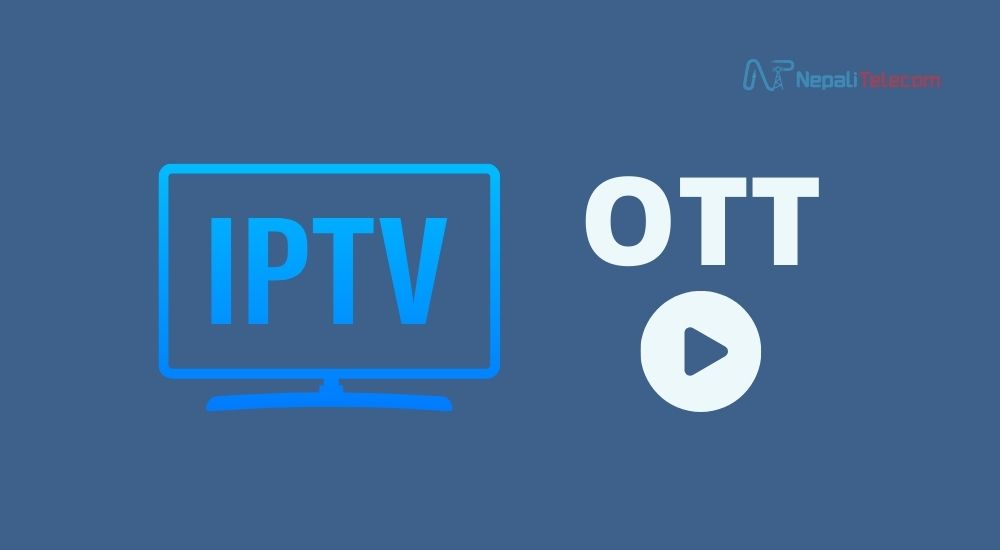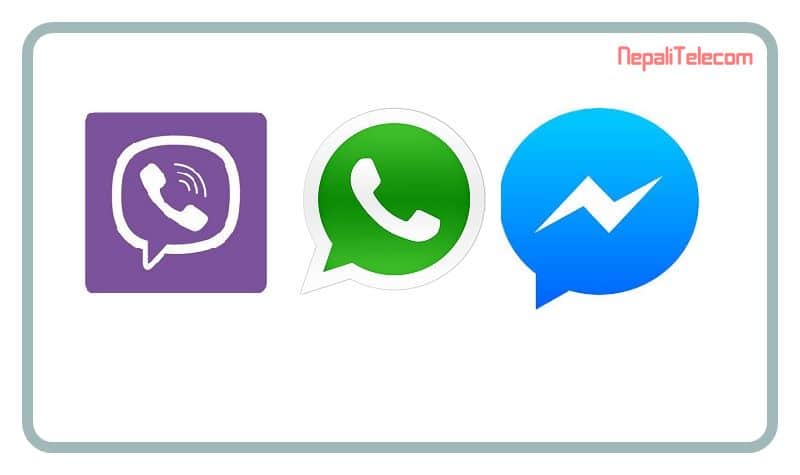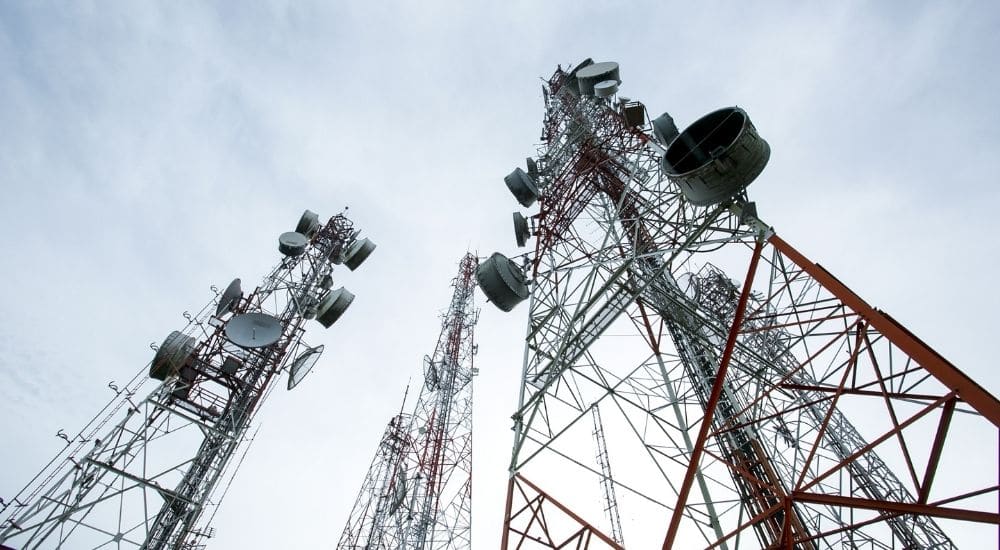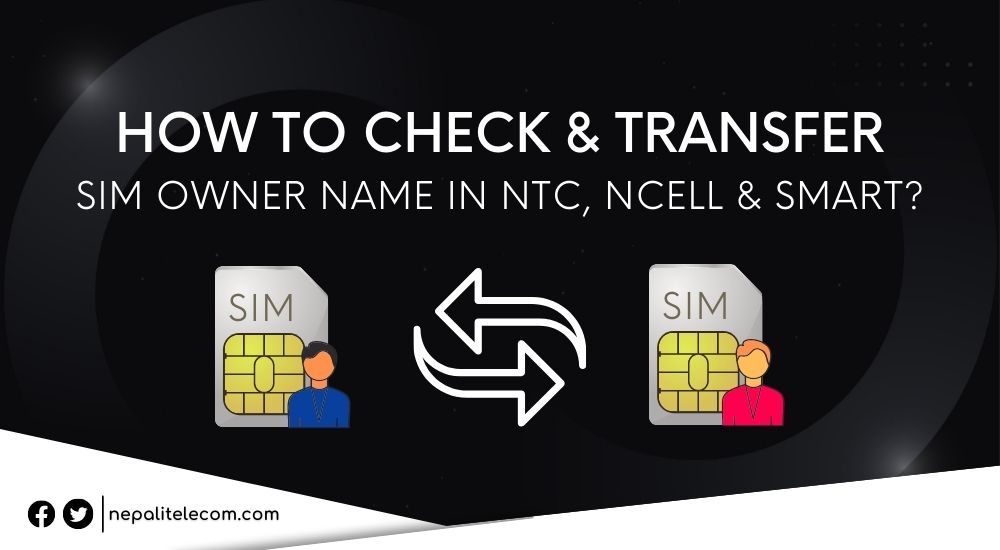Nepal Telecommunication Authority (NTA) has prepared a draft framework that seeks to regulate OTT apps in Nepal. The authority seeks to implement the rules to bring Facebook Messenger, WhatsApp, Viber, and other electronic services within the rulebook of the government.
The telecom regulator has long attempted to clamp down on the free use of OTT platforms as their existence has impacted carriers. The number of people preferring calls via such platforms is growing over cellular calls which have directly impacted telcos’ revenues hence the regulatory framework.
The framework states that the aim is to promote mutual cooperation between telecommunication and OTT service providers. Additionally, it also mentions the need to protect national interest while promoting OTT services. This will also allow the government to earn revenues from the platforms which so far have evaded the authorities.
The Telecommunication Standardization Sector of the International Telecommunications Union (ITU-T) defines Over-the-Top (OTT) as an application accessed and delivered over the public Internet that may be a direct technical/functional substitute for traditional international telecommunication services.
So, the OTTs comprise communication services such as messaging, telephony, and content services that provide audio/video communication.
3 months ago, NTA formed a work group under the leadership of director Ambar Sthapit. The group studied OTTs’ needs, working processes, and international practice.
Now, it has prepared the draft which mentions that it is necessary for OTT to register themselves in Nepal for their operation. Likewise, the authority has called for suggestions, and opinions on the draft from the stakeholders.
NTA to regulate OTT apps in Nepal | Messenger, WhatsApp, Viber
The draft framework states that OTT platforms must be registered and have their branch office in Nepal as per the Companies Act, 2006.
- For this, the companies can also appoint an intermediary.
- Willing platforms must submit an application to the NTA.
- The authority will issue the authorization to operate OTT after an in-depth study and analysis of the legal and technical aspects of the request letter.
- Essentially, the OTT service providers must cooperate with TSCs to provide their audio-visual services in Nepal.
The framework also mentions that companies must maintain security and privacy and commit to consumers’ data protection. It is also established that companies must convey consumer data to agencies. Likewise, such companies must also establish a Content Delivery Network (CDN) inside Nepal for providing faster and more secure services.
Regulating Online Television in Nepal
Likewise, the government has also set various criteria for the operation of various electronic services collectively termed “online television”.
Prior to this OTTs, VoD, and YouTube Channels were all running without being accountable to the government. But the Ministry had made its plans clear. Previously, it stated that any motion picture or video content must pass through the Film Censor Board before reaching the audience.
The Ministry had stated that any motion picture or video content must pass through the Fim Censor Board before reaching its audience. To enforce this, the MoICT was referring to the decades-old Motion Picture (Production, Exhibition, and Distribution) Act, of 2026. This directly hinted at regulating OTT & IPTV platforms and other video services that we get on the internet.

MoICT had also warned that any guilty individual or party would face fines up to Rs.5,000 and their license could be revoked by the CDO (Chief District Officer). Adding to it, the authority could also confiscate the tools and equipment used in filmmaking, exhibiting, and distributing.
Now, the government has published its new amendments to the National Broadcasting Rules, it is formal and will go into implementation shortly.
Don’t miss: OAG Directs Nepal Government To Regulate Social Media And OTTs
What’s in the amendment?
The amendment defines internet content aired over the internet including YouTube, OTT, and other internet content as online television. Likewise, Sub-rule 2 of Rule 2 defines OTT as a service broadcast over the internet without cable or satellite. Similarly, Video on Demand (VoD) is defined as a service after television within its own network by a licensed company.
The amendment defines regularly aired audio-visual content online by individuals or a group as online TV (internet TV). And they will need to adhere to the government’s terms and conditions for their content broadcast.
Find more on: NetTV Launches Streamz+, the Android-Powered STB
Video ratings for OTT & IPTV platforms
The new amendment dedicates a large share of criteria for online content, especially OTT. Over Top content, delivery is on the rise in Nepal and the government has finally brought it within its jurisdiction. The following are key highlights from the latest amendment to the National Broadcasting Rules.
For OTT, it says if a company adds a member or a customer in Nepal, it has to establish a cache server in Nepal. Likewise, the company must store its financial transactions with customers on its servers. The government says that a company not complying with its criteria won’t obtain a license.
Besides, the government has also mandated content ratings as per the customers’ age group. For content suitable for all age groups, the content gets a ‘U’ rating. An ‘R’ rating is issued for content suitable to 10 – 18 years old. The contents viewable for 18+ shall get an ‘A’ rating.
| Age Groups | Rating |
| For all | U |
| 10 – 18 | R |
| 18+ | A |
Do check: IPTV Vs Digital TV; Differences and which one to choose?
License charges for OTT, IPTV, and YouTube channels in Nepal
The Government of Nepal has set the license registration charge for different broadcasting mediums. From now on, an OTT platform will get its license for 1 crore. Similarly, a VoD service can get its license for 2 lakh. Besides, online Television channels (that also accommodate YouTube channels) will get their license for 5 lakh. YouTube channels, much talked about after this ruling, fit into online TV. So, it seems starting a YouTube channel will require a license and Rs.5 lakh fees for it.
| Broadcasting platforms | License charges (NPR) |
| OTT | 1 crore |
| VoD | 2 lakh |
| Online Television (Internet TV) | 5 lakh |
The new ruling now regulates OTT, YouTube channels, and other online content. Now, these providers must register their platforms and comply with the government’s terms and conditions. This also makes them subject to a 2 percent contribution out of their profit to the state.
The government had long talked about regulating online content but has now formalized it. The amendments have already been published on the Rajpatra. That means the new ruling will implement immediately.
Don’t miss: NTA terms OTT calls (Viber out, Skype Out) to Mobile/landline as illegal
NTA is set to regulate OTT apps in Nepal but do you think it will limit its usage in the draft calls for OTT services’ cooperation with TSCs? Do offer your opinion in the comments below.












